
Politics, social media, misinfo + occasional cinegeekery. Assistant Professor of @PUPolitics and Public Affairs, @PrincetonSPIA. Founding co-editor, @journalqd.
How to get URL link on X (Twitter) App

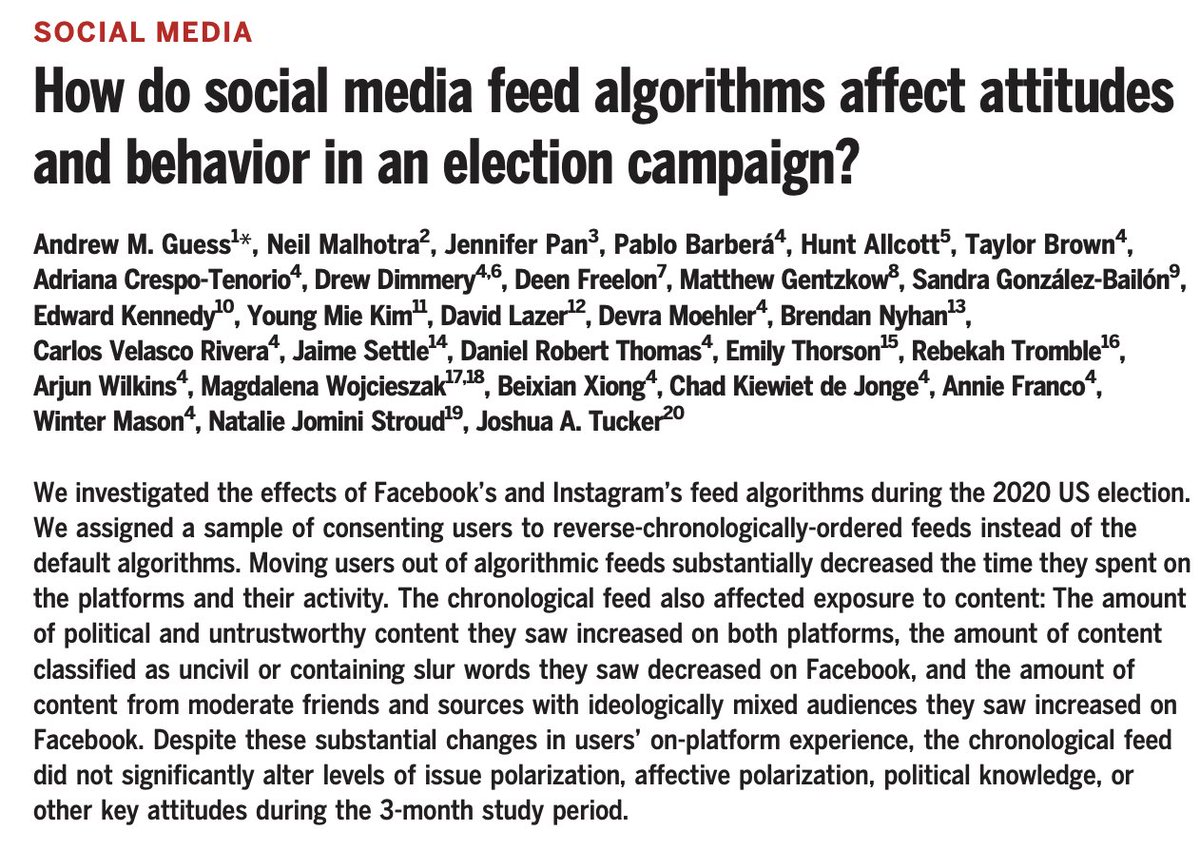
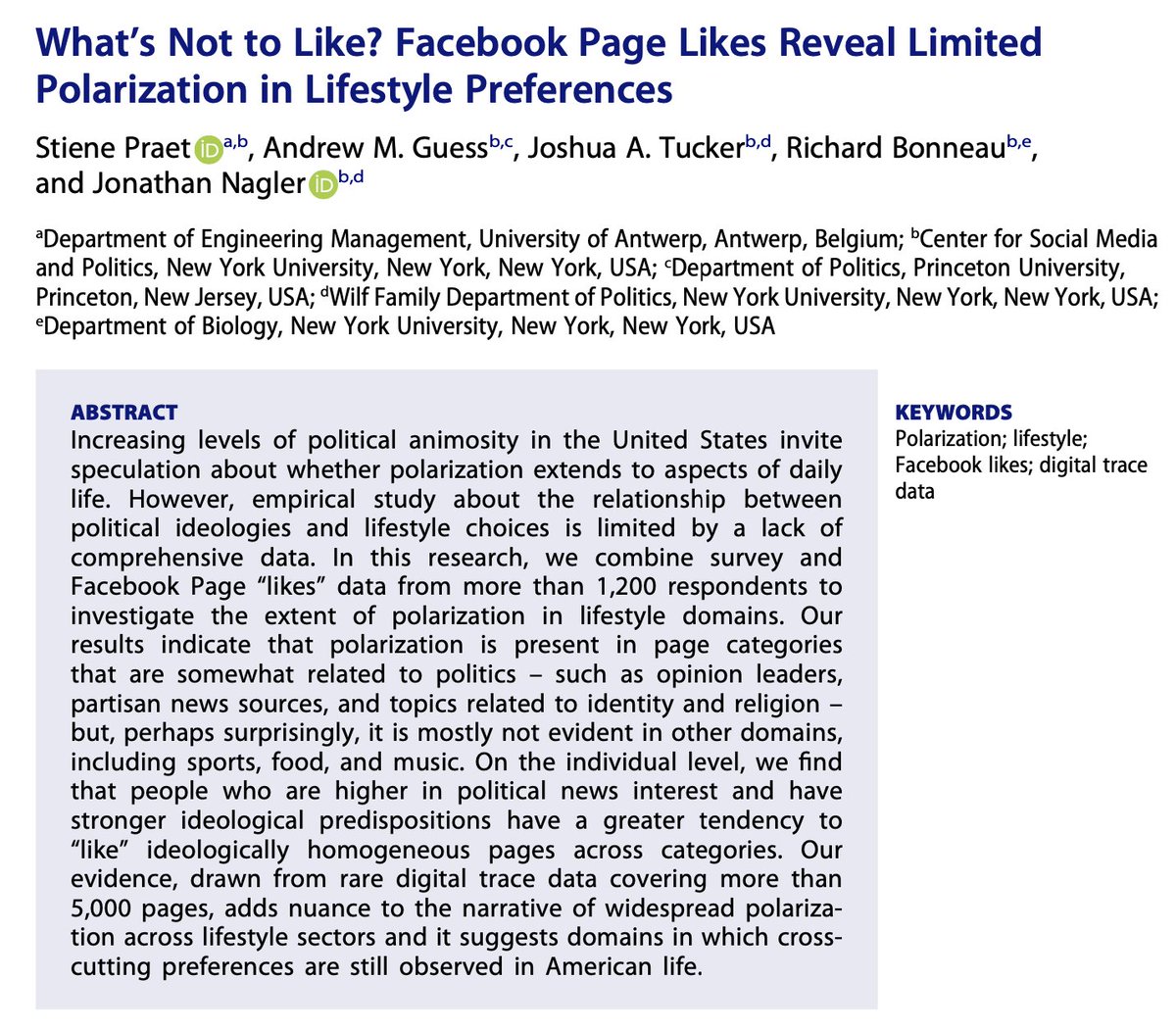
 TL;DR We find a clear divide: page categories directly related to politics — opinion leaders, partisan news sources, topics related to identity&religion — are more polarized. Other categories — including sports & food! — are not, though with some exceptions (hello, @ChickfilA) /2
TL;DR We find a clear divide: page categories directly related to politics — opinion leaders, partisan news sources, topics related to identity&religion — are more polarized. Other categories — including sports & food! — are not, though with some exceptions (hello, @ChickfilA) /2
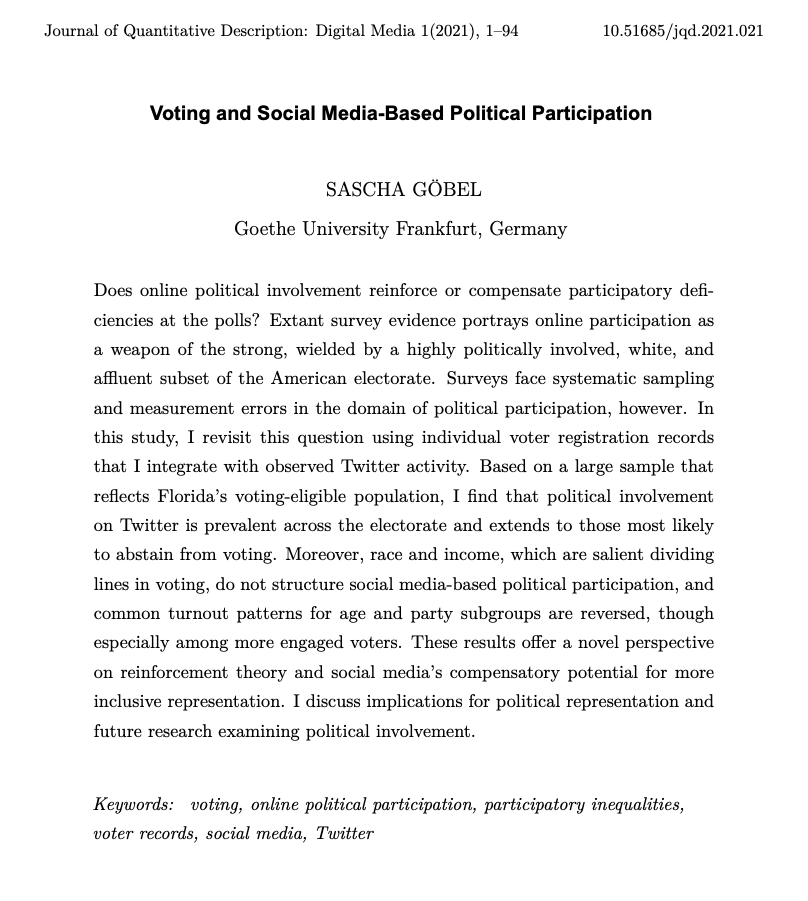
 Göbel devises an ingenious method of linking Twitter + administrative voting data: Start with the FL voter file — which includes emails — and use "import from contacts" feature to repeatedly upload records to Gmail and match to accounts on Twitter. This avoids selecting on DV /2
Göbel devises an ingenious method of linking Twitter + administrative voting data: Start with the FL voter file — which includes emails — and use "import from contacts" feature to repeatedly upload records to Gmail and match to accounts on Twitter. This avoids selecting on DV /2


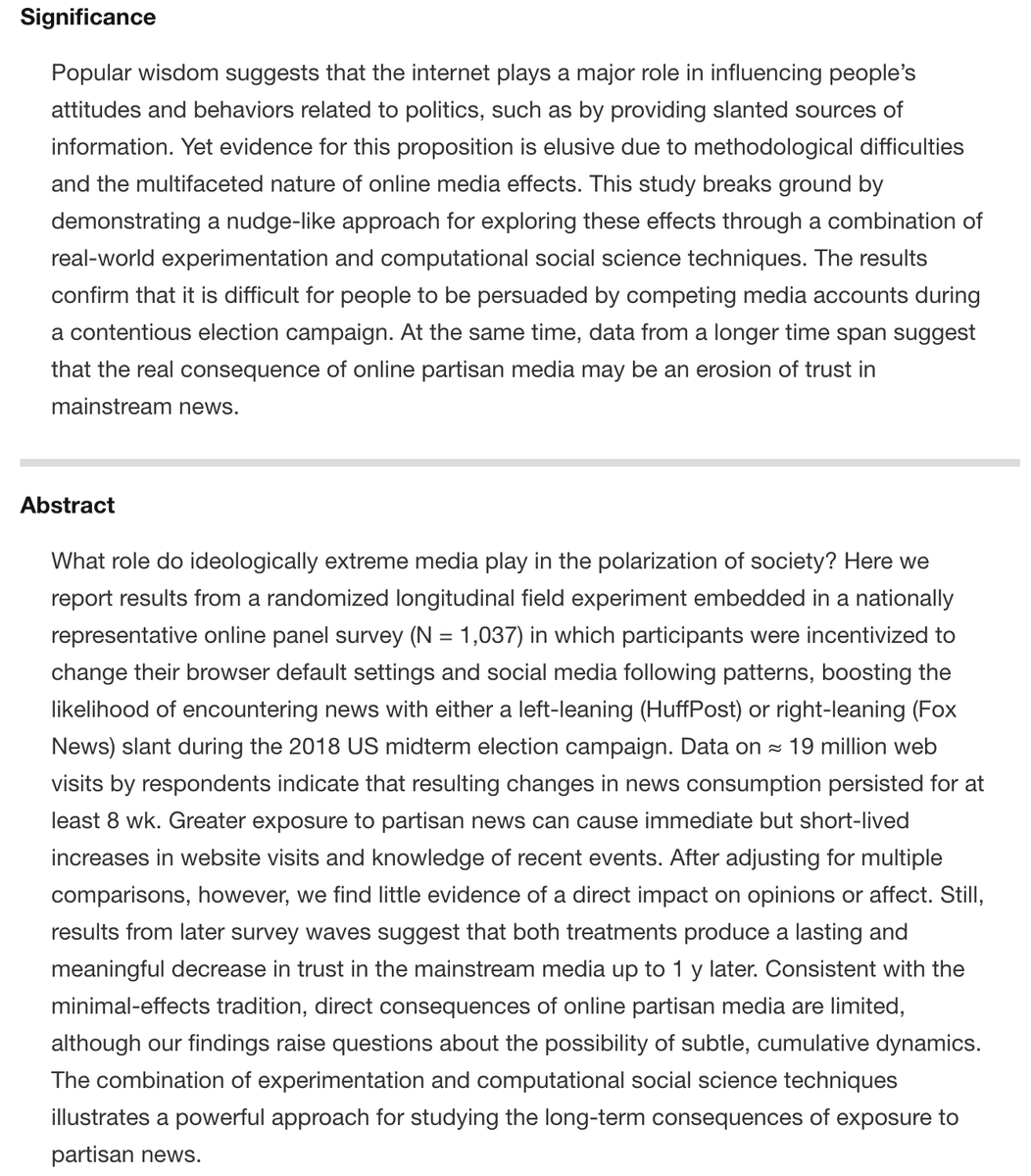 TL;DR: Surveying people after a real-world intervention that boosted the amount of partisan news they encounter, we rule out modest effects on issue importance, political opinions, turnout/vote choice, approval & affective polarization -- i.e., the usual outcomes we talk about /2
TL;DR: Surveying people after a real-world intervention that boosted the amount of partisan news they encounter, we rule out modest effects on issue importance, political opinions, turnout/vote choice, approval & affective polarization -- i.e., the usual outcomes we talk about /2
https://twitter.com/andyguess/status/1283516635257679872?s=20
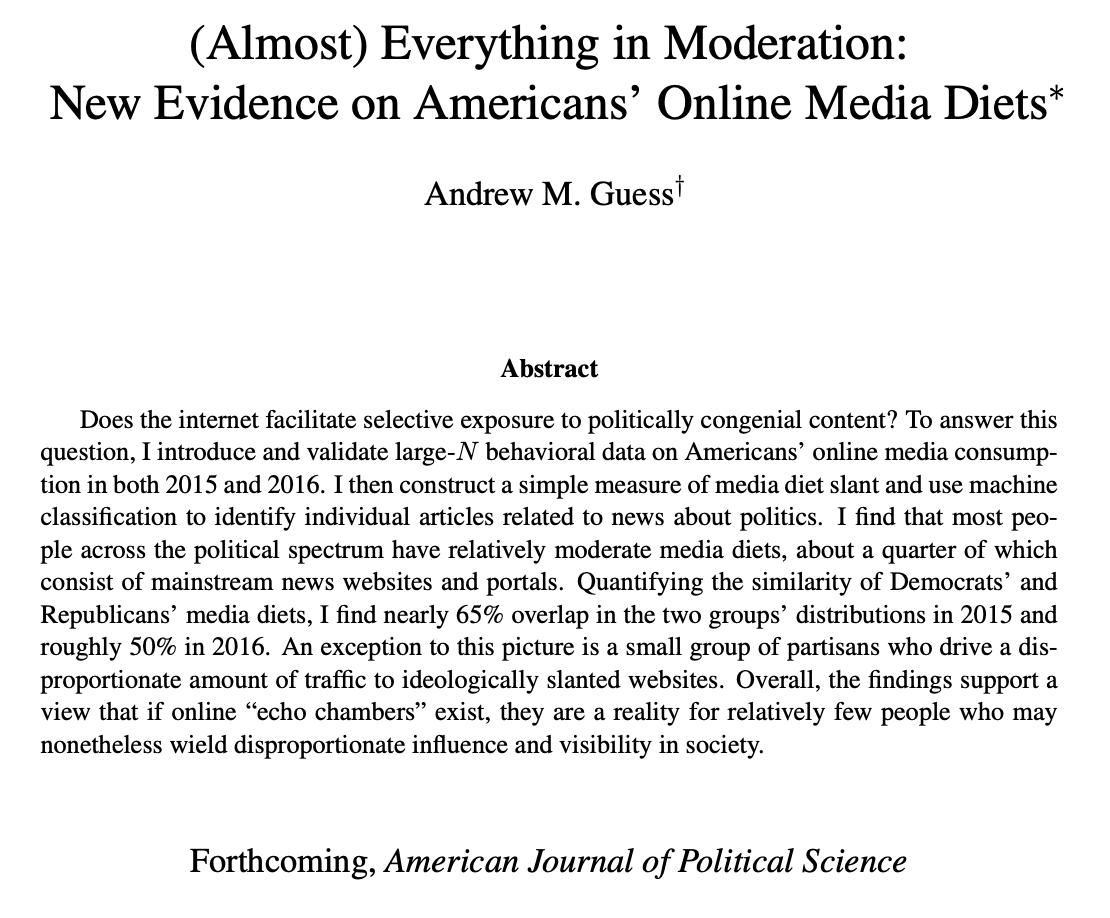
 If you follow me, you might've encountered the headline finding before: contra @CassSunstein and others who argue that we're increasingly siloed into informational cocoons, people mostly rely on centrist media. As a result, news consumption patterns of Dems + Reps overlap a lot.
If you follow me, you might've encountered the headline finding before: contra @CassSunstein and others who argue that we're increasingly siloed into informational cocoons, people mostly rely on centrist media. As a result, news consumption patterns of Dems + Reps overlap a lot. 